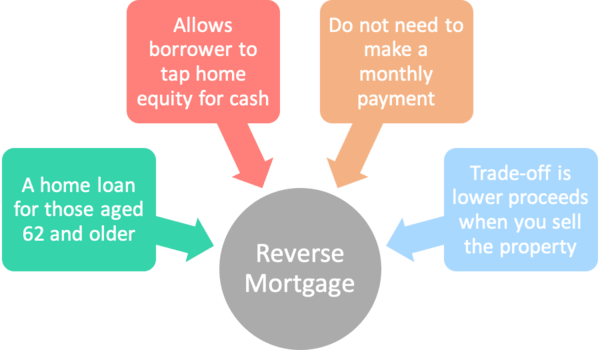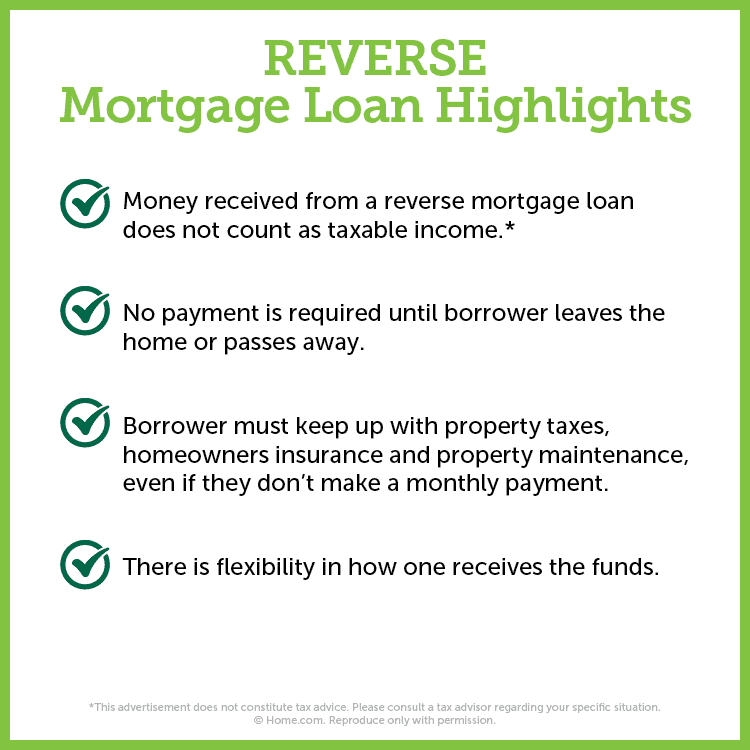Empower Your Retired Life: The Smart Way to Acquisition a Reverse Home Loan
As retirement approaches, several individuals look for efficient methods to enhance their economic freedom and health. Among these methods, a reverse home loan arises as a viable alternative for homeowners aged 62 and older, permitting them to touch right into their home equity without the necessity of month-to-month settlements.
Understanding Reverse Home Mortgages
Understanding reverse home mortgages can be vital for house owners looking for economic flexibility in retirement. A reverse home loan is a monetary product that permits qualified property owners, normally aged 62 and older, to transform a portion of their home equity right into cash money. Unlike standard mortgages, where customers make month-to-month payments to a lender, reverse home loans allow home owners to receive repayments or a round figure while preserving ownership of their residential or commercial property.
The amount available through a reverse home mortgage depends on a number of aspects, consisting of the homeowner's age, the home's value, and existing rate of interest. Importantly, the car loan does not need to be paid back up until the homeowner offers the home, leaves, or dies.
It is essential for prospective customers to comprehend the ramifications of this economic item, consisting of the influence on estate inheritance, tax obligation factors to consider, and ongoing responsibilities associated with residential or commercial property upkeep, tax obligations, and insurance policy. Additionally, counseling sessions with licensed professionals are frequently needed to ensure that consumers completely understand the terms and problems of the lending. In general, a complete understanding of reverse home loans can equip homeowners to make enlightened choices regarding their financial future in retired life.
Advantages of a Reverse Home Mortgage
A reverse mortgage uses a number of engaging advantages for qualified house owners, specifically those in retired life. This monetary device allows elders to convert a portion of their home equity right into cash, giving essential funds without the need for month-to-month home mortgage payments. The cash gotten can be used for numerous functions, such as covering clinical costs, making home renovations, or supplementing retirement revenue, hence improving general financial flexibility.
One significant benefit of a reverse mortgage is that it does not need payment up until the home owner relocates out, markets the home, or dies - purchase reverse mortgage. This attribute makes it possible for senior citizens to keep their way of living and fulfill unanticipated prices without the worry of month-to-month settlements. In addition, the funds obtained are generally tax-free, enabling house owners to use their money without concern of tax obligation ramifications
Moreover, a reverse home loan can give comfort, recognizing that it can work as an economic safeguard during difficult times. Property owners likewise preserve possession of their homes, guaranteeing they can continue living in a familiar environment. Eventually, a reverse home loan can be a calculated financial source, empowering senior citizens to manage their funds efficiently while enjoying their golden years.
The Application Process
Browsing the application procedure for a reverse mortgage is an essential action for property owners considering this economic alternative. The first phase includes reviewing eligibility, which typically requires the property owner to be at the very least 62 years of ages, very own the home outright or have a reduced mortgage equilibrium, and occupy the home as their key home.
As soon as qualification is verified, property owners should go through a therapy session with a HUD-approved therapist. This session ensures that they totally understand the implications of a reverse mortgage, including the responsibilities involved. purchase reverse mortgage. After completing therapy, candidates can proceed to collect required documents, including proof of income, possessions, and the home's value
The next action involves submitting an application to a lending institution, who will certainly analyze the financial and property credentials. An appraisal of the home will likewise be performed to determine its market price. If authorized, the lending institution will provide financing terms, which should be examined meticulously.
Upon acceptance, the closing process complies with, where last papers are authorized, and funds are paid out. additional resources Understanding each phase this of this application process can considerably improve the house owner's self-confidence and decision-making pertaining to reverse mortgages.

Key Factors To Consider Prior To Investing In
Buying a reverse mortgage is a considerable monetary decision that requires careful factor to consider of numerous crucial elements. First, understanding your qualification is critical. Property owners have to be at least 62 years old, and the home has to be their main home. Evaluating your economic requirements and goals is just as crucial; determine whether a reverse home mortgage lines up with your long-term strategies.

A reverse home mortgage can impact your eligibility for certain government advantages, such as Medicaid. By extensively examining these considerations, you can make a more informed choice concerning whether a reverse home mortgage is the appropriate monetary technique for your retirement.
Making the Most of Your Funds
Once you have actually safeguarded a reverse home loan, efficiently managing the funds becomes a priority. The adaptability of a reverse home mortgage allows property owners to utilize the funds in various means, however critical planning is essential to optimize their benefits.
One essential method is to develop a budget plan that outlines your economic goals and monthly expenditures. By identifying essential expenses such as medical care, property tax obligations, and home maintenance, you can designate funds accordingly to make sure long-term sustainability. Furthermore, consider utilizing a section of the funds for investments that can create income or value in time, such as mutual funds or dividend-paying supplies.
Another crucial element is to keep an emergency situation fund. Alloting a get from your reverse home mortgage can aid cover unforeseen expenses, giving satisfaction and monetary security. In addition, seek advice from an economic consultant to discover feasible tax implications and just how to integrate reverse home loan funds into your general retirement method.
Eventually, prudent administration of reverse home mortgage funds can enhance your financial security, allowing you to enjoy your retirement years without the anxiety of economic unpredictability. Careful planning and notified decision-making will make certain that your funds work successfully for you.
Conclusion
In verdict, Extra resources a reverse mortgage presents a viable economic method for seniors looking for to improve their retirement experience. By transforming home equity into accessible funds, people can address crucial costs and protected extra financial sources without incurring regular monthly payments.
Recognizing reverse home loans can be crucial for home owners seeking monetary adaptability in retirement. A reverse home mortgage is a financial item that allows qualified homeowners, normally aged 62 and older, to convert a part of their home equity right into money. Unlike typical mortgages, where debtors make month-to-month payments to a lending institution, reverse mortgages allow home owners to get settlements or a lump sum while preserving ownership of their home.
On the whole, a comprehensive understanding of reverse home loans can empower property owners to make educated choices about their financial future in retirement.
Consult with an economic expert to discover feasible tax ramifications and exactly how to incorporate reverse home loan funds right into your total retirement technique.
Comments on “How to Purchase Reverse Mortgage and Unlock Your Home’s Equity”